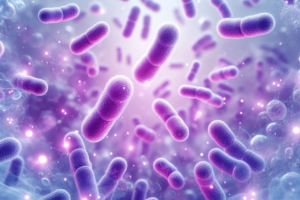Do you often get symptoms such as a burning sensation in your stomach?
It could be because of many things, but 2 common causes are peptic ulcers and gastroesophageal reflux disease (GERD) also known as acid reflux. Though the symptoms may be different the conditions are often confused with other causes of digestive pain.
Digestive pain, whether it can be a peptic ulcer or gastroesophageal reflux disease, treatment options are available.
How to recognize an ulcer and GERD?
Ulcers are basically open sores that develop on the lining of the stomach. Ulcers may also occur in the intestine just beyond the stomach. These are termed as duodenal ulcers. Stomach and duodenal ulcers are sometimes called peptic ulcers.2 Ulcers can break through the tissue’s layer, letting stomach acids in the body which can be responsible for causing pain.
Although there are different types of peptic ulcers, mainly two types of ulcers are very common :
- Gastric ulcers: These happen in your stomach
- Duodenal ulcers: These occur in your duodenum, the top part of your small intestine.
Ulcer symptoms may occur in very few and some may experience very mild symptoms. Few symptoms such as:
- Vomiting blood or dark materials
- Dizziness or weakness
- Blood in stools
- Nausea or vomiting
- Losing weight without trying
For GERD
GERD is a digestive disease in which stomach acid or bile irritates the food pipe lining, it is a state associated with irritable symptoms and few side effects brought on by the reflux of stomach contents into the esophagus. Acid reflux and heartburn more than twice a week may indicate GERD. Few other symptoms include: 4
- Chest pain
- Sore throat
- Hoarseness
- Vomiting
Causes of Ulcers and GERD
Many factors can be responsible for causing ulcers, but two of them are common: a kind of bacteria called H. pylori and NSAIDs (commonly known as pain medications). Causes of GERD may be Milk, spices, fried foods or asthma medication.
Treatment options
Ulcer
Treatment depends on the cause, some of the medicines which are prescribed are:
- Proton pump inhibitors (PPIs)
- Histamine receptor blockers (H2 blockers)
GERD
There are several treatment options: over-the-counter (OTC) medications, prescription medications or surgery. OTC includes Antacids which help to neutralize stomach acids. Prescription medicines may include omeprazole and esmoprazole. If the medicines are not effective then surgery can be one of the options, one common procedure is called fundoplication. It helps to tighten the muscles between your esophagus and stomach and prevents acid from easily traveling back up toward your mouth.
The prevalence of GERD in India ranges from 8% to 30% of total population which is predominantly due to usage of spices and non-vegetarian foods.7 Conventional treatments available are antacids and histamine H2 receptor blockers (H2RAs), proton pump inhibitors (PPIs) which may lead to adverse events upon long term use. Hence the need for alternative medicines.
Lactoflux, a novel & patented strain of lactic acid bacterium Lactobacillus johnsonii (L. johnsonii) No. 1088 and discovered in healthy Japanese individuals, has been studied for its beneficial properties to address the root causes of gastric problems and provide long-lasting, soothing and protective effects.8
The Healing properties of Lactobacillus johnsonii (L. johnsonii) No. 1088
As we know gastric acid is important for digestion and also helps to kill harmful bacteria in the stomach, excessive gastric acid production due to factors such as stress and poor diet can sometimes lead to gastric problems like ulcer, acid reflux and heartburn. Lactobacillus johnsonii (L. johnsonii) No. 1088 is a natural ingredient, one of the best probiotics and does not have a negative effect on the digestive system. This Lactic Acid Bacteria (LAB) strain reduces gastrin and overactive gastric acid secretion and maintains them at an optimal level for effective digestion and pain relief. L. johnsonii No. 1088 targets the root cause of gastric concerns to provide long-term soothing effects.
- johnsoniiNo. 1088 Helps Manage the Side effect of H. pyloriTreatment
- johnsonii No. 1088 has a very unique ability to synergistically eradicate H. pyloriand it also suppresses overactive gastric acid secretion (if necessary) to prevent GERD symptoms from arising after the elimination of H. pylori from the body.
Other Benefits of L. johnsonii No. 1088
ther benefits of L. johnsonii No. 1088 include regulation of intestinal flora by helping to increase the number of Bifidobacteria (good bacteria) residing in the intestines. Bifidobacteria promote good digestion, boost immunity and produce lactic acid to control intestinal pH and inhibit the growth of pathogenic (malicious) bacteria. It also helps to decrease Clostridia, a group of bacteria that are harmful to health when their numbers outgrow that of the good bacteria.
Key features
- It has scientifically proven health benefits.
- Superior potency in targeting the root cause of gastric concerns.
- Backed by extensive research papers.
- Lactobacillus johnsonii1088 has been listed in the European Food Safety Authority (EFSA) in accordance with Qualified Presumption of Safety (QPS). The safety is further confirmed by acute toxicity, micronucleus and Ames tests.
- Patented in Japan, Korea and the United States for strain, function and application (patent numbers: JP4457364, JP5075254, KR101061143, KR101451188, US 9243300 B2).
Reference:
- Maret-Ouda J, Markar SR, Lagergren J. Gastroesophageal reflux disease: a review. Jama. 2020 Dec 22;324(24):2536-47.
- Kuna L, Jakab J, Smolic R, Raguz-Lucic N, Vcev A, Smolic M. Peptic ulcer disease: a brief review of conventional therapy and herbal treatment options. Journal of clinical medicine. 2019 Feb 3;8(2):179.
- Wunker C. The diagnosis and treatment of peptic ulcer disease and its complications: a review. Consultant. 2018;58(1):10-6.
- Chhabra P, Ingole N. Gastroesophageal Reflux Disease (GERD): Highlighting Diagnosis, Treatment, and Lifestyle Changes. Cureus. 2022 Aug 29;14(8).
- Kavitt RT, Lipowska AM, Anyane-Yeboa A, Gralnek IM. Diagnosis and treatment of peptic ulcer disease. The American journal of medicine. 2019 Apr 1;132(4):447-56.
- Badillo R, Francis D. Diagnosis and treatment of gastroesophageal reflux disease. World journal of gastrointestinal pharmacology and therapeutics. 2014 Aug 8;5(3):105.
- Tan VP, Wong BC, Wong WM, Leung WK, Tong D, Yuen MF, Fass R. Gastroesophageal Reflux Disease. Journal of clinical gastroenterology. 2016 Jan 1;50(1):e1-7.
- https://www.gastricell.com/l-johnsonii-no-1088/







